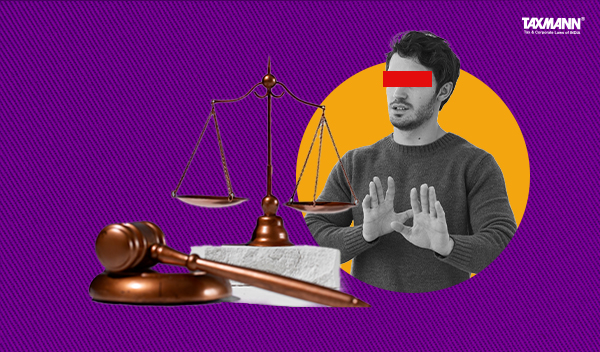[Opinion] A Section That Refuses to Go
- News|Blog|Income Tax|
- 2 Min Read
- By Taxmann
- |
- Last Updated on 11 July, 2024

Meenakshi Subramaniam – [2024] 164 taxmann.com 219 (Article)
One spaceship was sent on an important mission to remove debris. The astronaut came across Section 248 of income tax, sitting prettily there. It had been removed, but because it had not been fully extinguished, it flew into space. The astronaut tried to tear it, but it stuck back as one whole. He used explosives to blast it, but it remained in one piece. He tried to burn it, but it emerged unscathed. He tried to run a bulldozer over it, but it danced in front of contraption. Finally, an income tax expert said that unless it is thrown out of tax provisions it would not go. So, everyone is waiting for Budget 2024 to remove it.
Why a Need for TDS Refund Arises
In many situations, the deductor after deducting tax realizes that it was not required to be done or was done at a higher rate. The need of refund arises in such cases.
Section 248 was a mischievous provision. To obtain a refund of the tax deducted and paid by a person, where it was not deductible, the taxpayer had to go in for the difficult appellate process. He had to make an appeal to the Commissioner (Appeals) for a declaration that no tax was deductible on such income. Section 248 did not allow making an appeal to an assessing officer, which made the process tedious and long.
In view of mitigating the hardships and rationalizing the refund procedure, the new section 239A was inserted in the Act to provide that such a person, who has made the deduction of tax under such an agreement or arrangement and borne the tax liability, when no tax deduction was required, may file an application for refund of such tax deducted, excluding interest, before the Assessing Officer.
Budget 2022, therefore, simplified and hastened this process of seeking refund on a wrong TDS. An assessee can now make an appeal before the assessing officer, and will be required to approach deputy commissioner or commissioner if he/she is not satisfied by the assessing officer’s order.
Click Here To Read The Full Article
Disclaimer: The content/information published on the website is only for general information of the user and shall not be construed as legal advice. While the Taxmann has exercised reasonable efforts to ensure the veracity of information/content published, Taxmann shall be under no liability in any manner whatsoever for incorrect information, if any.

Taxmann Publications has a dedicated in-house Research & Editorial Team. This team consists of a team of Chartered Accountants, Company Secretaries, and Lawyers. This team works under the guidance and supervision of editor-in-chief Mr Rakesh Bhargava.
The Research and Editorial Team is responsible for developing reliable and accurate content for the readers. The team follows the six-sigma approach to achieve the benchmark of zero error in its publications and research platforms. The team ensures that the following publication guidelines are thoroughly followed while developing the content:
- The statutory material is obtained only from the authorized and reliable sources
- All the latest developments in the judicial and legislative fields are covered
- Prepare the analytical write-ups on current, controversial, and important issues to help the readers to understand the concept and its implications
- Every content published by Taxmann is complete, accurate and lucid
- All evidence-based statements are supported with proper reference to Section, Circular No., Notification No. or citations
- The golden rules of grammar, style and consistency are thoroughly followed
- Font and size that’s easy to read and remain consistent across all imprint and digital publications are applied



 CA | CS | CMA
CA | CS | CMA
